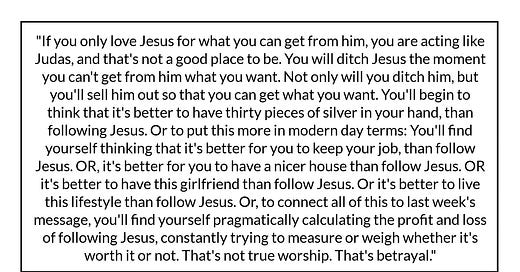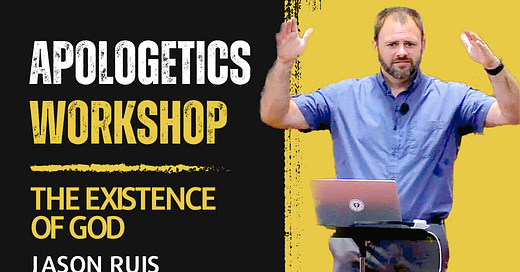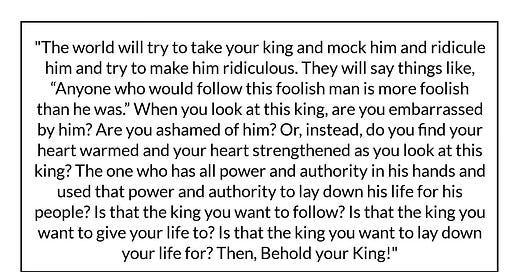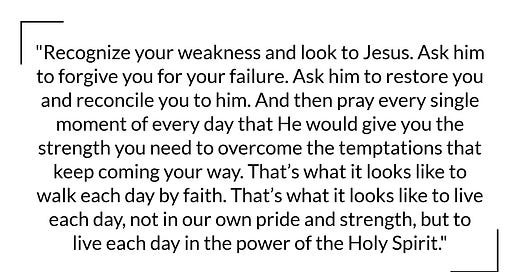
Jesus’ Anointing at Bethany
[Read John 11:55-12:8]
There are certain moments that end up revealing our true character. Often, we do a good job of hiding some of our flaws. We can be nice in difficult situations. We can be patient standing in line at the DMV. We can smile and wave at people who have repeatedly hurt us or done us wrong. We can bite our tongue when someone says something we strongly disagree with. However, no matter how good we are at hiding these things, the truth will eventually come out. Our true character will eventually be revealed.
Each temptation has its own type of triggering event. Many of you have heard me use this analogy before, and it has maybe caused some of you to worry about my walk with Christ, but I'm pretty good at biting my tongue, controlling the words that come out of my mouth...until I start working on a car. I don't know what it is about working on cars, but I get frustrated, I start yelling at every engineer that has ever designed that vehicle. Words start coming out of my mouth that shouldn't come out of my mouth. I repeatedly have to take small little breaks to calm down, take a breath, and repent, apologize, and seek forgiveness from God. It's one of those moments that reveals things that are still deep down inside me.
It's actually pretty scary when you think about it, especially when you think of Jesus' words: “What comes out of the mouth proceeds from the heart, and this defiles a person.” (Matthew 15:18, ESV). So, those words that are coming out of my mouth, are actually coming from my heart. They are revealing some sinfulness that is still residing deep within me, a sinfulness that Jesus died for and the Holy Spirit is working on removing from me. Yet, it's still there and it will eventually come out. That's kinda scary and hard for some people to grasp.
For you it may not be working on cars, but you probably have that one person that just causes you to feel certain things and say certain things that you would never say. Or you have that one task (either at work or home) that pushes you over the edge, and causes your true character to come out. We can't hide these things forever because we can't cover up our sin. The only way to get rid of sin is to confess it, repent from it, and seek cleansing and forgiveness through Jesus Christ. That's the only way.
This is a story that shows how the true character of two people is revealed in a tense situation. Remember what we talked about last week, the Sanhedrin has decided that Jesus needs to die. So, they get right to work making plans and decrees to get that job done. Jesus leaves and heads back out into the wilderness for a while, but the Passover is coming. And Jesus has always come back to Jerusalem for every feast. That's why he's the talk of the town. We read, “Now the Passover of the Jews was at hand, and many went up from the country to Jerusalem before the Passover to purify themselves. They were looking for Jesus and saying to one another as they stood in the temple, “What do you think? That he will not come to the feast at all?” Now the chief priests and the Pharisees had given orders that if anyone knew where he was, he should let them know, so that they might arrest him.” (John 11:55–57, ESV). Notice a couple things about this passage. The Jews knew what Jesus had done in raising Lazarus from the dead, but they also knew what the Sanhedrin had planned, at least to some degree. The Sanhedrin had given public order that Jesus' whereabouts should be reported by anyone who had information. This was a city-wide "be on the lookout" for Jesus. So the crowd starts to wonder whether Jesus is going to show up. He always shows up at the feast, but maybe he'll skip this one, since the Sanhedrin is out to get him.
In contrast to all of the tensions in Jerusalem, we read this: “Six days before the Passover, Jesus therefore came to Bethany, where Lazarus was, whom Jesus had raised from the dead. So they gave a dinner for him there. Martha served, and Lazarus was one of those reclining with him at table.” (John 12:1–2, ESV). Jesus comes back into the area six days before the Passover. Most likely this means that Jesus is back in town on a Friday night, just in time for Sabbath dinner. We don't actually know whether this dinner is at Mary, Martha, and Lazarus' house. Actually, because of the way it's worded, most likely it's not, which is why they clarify that Lazarus was there too. So, somebody throws a Sabbath dinner, and invites Jesus as the special guest. Martha is serving. Lazarus is reclining at the table with Jesus. It almost seems nonchalant to some degree. Just a guy who was raised from the dead, eating a meal with the guy who raised him from the dead. No big deal.
Yet, there is still a tension present at this meal. Everyone is beginning to feel the pressure of what is happening in Jerusalem. Jesus knows that the Sanhedrin has decided to kill him. Since the Sanhedrin has made a public announcement about reporting and arresting Jesus, most everyone knows, or at least has a good idea, that the Sanhedrin has decided to kill Jesus. Everyone has a strong sense that Jesus may not be with them much longer. This feeling puts some pressure on the situation that begins to reveal the true character of some people in the story.
Before I dive into that further, I also think it's really important to point out a couple things about this passage. This passage is a transitional passage. Yet, it has a main point that I'm about to get to. However, it's really a short story that is setting things up for what is about to come. This passage is showing how things are working out after the Sanhedrin's decision, and setting things up for what is going to happen eventually. This passage is showing the curiosity and intrigue around Jesus that will set things up for his triumphal entry into Jerusalem. The entire passage is in the context of the Passover, which gets everybody thinking about sacrificial lambs, and what John the Baptist said about Jesus being the lamb of God who takes away the sins of the world. There are repeated references to the resurrection of Lazarus, which has us wondering about Jesus' own resurrection. We're also going to learn something important about Judas. Something that is going to connect to all of these things and play a massive role in the story.
In this story, Judas' true character is revealed. This is one of his triggering moments, a pressured situation that causes what he's been trying to hide for quite some time to finally come out into the open. Judas is triggered over financial concerns/issues. He watches Mary waste a massive amount of money, pouring oil on Jesus and he can't handle it anymore. He can't keep it in anymore. He HAS to say something. He says, “Why was this ointment not sold for three hundred denarii and given to the poor?” (John 12:5, ESV). Now, a denarii is about one-days-wage. So, this is about a year's salary. I looked up the average yearly salary in the United States right now and it's a little over $50k. Judas watched Mary waste $50k worth of oil and he can't take it anymore. Couldn't that have been used for something better? Couldn't that have been used for the poor?
Yet, John fills in more of the details saying, “He said this, not because he cared about the poor, but because he was a thief, and having charge of the moneybag he used to help himself to what was put into it.” (John 12:6, ESV). This is a telling line, because it shows us that Judas is still trying to cover up and hide what is truly inside him, even when he blows up. He blows up because he sees money being wasted, money that HE could have for himself. Of course, he can't say that to Jesus. So, he tries to mask it by saying something about the poor. The reality is, Judas' true character comes out in that moment. He reveals that he is greedy and selfish and that he doesn't actually understand who Jesus really is.
We also see that Judas was only following Jesus for what HE could get out of the deal. He was only following Jesus so that he could get what he wanted. It really wasn't about Jesus, but about Judas. If Jesus could give him what he wanted, great, but the moment Jesus won't give him what he wanted, he was going to find another way to use Jesus to get what he wants, which is more money. Herman Ridderbos has a great line explaining all of this. He says, "Judas, on account of his disappointed expectations and selfish motives, no less sharply assesses the situation, concluding that Jesus’ cause is heading for failure. Jesus’ stock is losing its value and Mary’s costly display of esteem is money down the drain." (Ridderbos, 416). Judas only saw a Jesus that could be used for his own purposes.
Yet, Mary responds very differently in this situation doesn't she? As she feels the pressure of the moment and realizes that Jesus' time may be growing short on this earth, and as she realizes that this may be the last supper that she has with Jesus, she does something completely different. We read, “Mary therefore took a pound of expensive ointment made from pure nard, and anointed the feet of Jesus and wiped his feet with her hair. The house was filled with the fragrance of the perfume.” (John 12:3, ESV). Everything about the way this story is told is designed to show us Mary's extravagant love for Jesus. She loves Jesus and worships him to the point that she is willing to sacrifice a year's salary to show him her love and devotion and adoration. Since she knows this may be the last time she has supper with him, she wants to give him everything she has. That's a very different picture than Judas.
Not only do we see love and devotion and adoration in Mary in this moment, but we also see humility. She comes to Jesus and anoints his feet and wipes his feet with her hair. She doesn't come rushing into the meal, drawing attention to herself. She isn't doing this so that everyone can see her tremendous act of worship. She comes up to his feet, anoints them, and then wipes it up with her hair. The scene is one of love and devotion and adoration and humility.
I'm not sure if any of you remember a series I preached a number of years ago on the mission statement of our church: Worshiping the Triune God in community, as a community, for the community. I spent a lot of time throughout that series helping us understand what true worship is and what it looks like. I repeatedly said that worship is adoration, submission, trust, and joy. That's the core of worship. Whenever we're showing adoration, submission, trust, and joy in our God (whether at work, on the lake, or in church) we are worshiping our God. That's exactly what we're seeing in this passage with Mary. She is worshiping Jesus. She's showing him adoration, submission, trust, and joy in his presence and she's showing them to him in abundance, to the point that the fragrance FILLS the room. That's what worship is and what worship looks like. Ridderbos says, "No price is too high and no loss too great to show [Jesus] what she feels for him." (Ridderbos, 416).
What I love about this, is that John comes back and uses irony again, kinda like last week but in a different way. The irony comes through Jesus' response to Judas: “Jesus said, “Leave her alone, so that she may keep it for the day of my burial.” (John 12:7, ESV). This is one of those passages that is really difficult to translate and if you pay attention to the various translations you may have in your house, you're going to see that it is translated a few different ways. Many people don't realize that the original Greek didn't have any punctuation. So, there are times when you have to take some educated guesses at what is going on. I think this is a good possible translation, but it has one difficulty. Other gospels tell this story as if Mary used the whole bottle of oil on Jesus, which means there was nothing left to save for his burial. However, this passage could also be translated as a rhetorical question, which I think fits better, saying, "Leave her alone. Did you expect her to keep this for the day of my burial?"
This seems to fit better with the other narratives of this event AND it has great rebuke of Judas included. Remember, Judas is complaining that this was a waste of money and resources that could have been used for more productive ministry. In this response, Jesus is rhetorically asking Judas, "So, you're saying it would be better for her to wait to pour this oil on me after I'm dead? Wouldn't that be more wasteful?" Not only is this a slight rebuke of Judas, but it's also tied up with TONS of irony. On the one hand, Judas is the one that will eventually betray Jesus, which will result in his death. Also, you have the Sanhedrin seeking to put him to death. Then, you have Mary, who is solely wanting to show Jesus her costly adoration and worship, but who ends up doing more than she knows. What she thought was worship and adoration to Jesus, is really more than that. In many ways, just like Caiaphas from last week, Mary is unknowingly prophetic about Jesus' death.
One of the reasons for this story is to shake us a little bit, to cause us to reflect on our own lives and to reflect on which character we are in the story. Do we find ourselves acting more like Mary or more like Judas in our worship? Do we find ourselves following Jesus around because of who he is--because of our love and adoration and worship of him--or are we following him around because we want something out of him? In many ways, it's the same question that was asked a few weeks ago. Do you love Jesus for who he is? or for what you can get from him? The answer to that question changes everything.
If you only love Jesus for what you can get from him, you are acting like Judas, and that's not a good place to be. You will ditch Jesus the moment you can't get from him what you want. Not only will you ditch him, but you'll sell him out so that you can get what you want. You'll begin to think that it's better to have thirty pieces of silver in your hand, than following Jesus. Or to put this more in modern day terms: You'll find yourself thinking that it's better for you to keep your job, than follow Jesus. OR, it's better for you to have a nicer house than follow Jesus. OR it's better to have this girlfriend than follow Jesus. Or it's better to live this lifestyle than follow Jesus. Or, to connect all of this to last week's message, you'll find yourself pragmatically calculating the profit and loss of following Jesus, constantly trying to measure or weigh whether it's worth it or not. That's not true worship. That's betrayal.
True worship of Jesus, worshiping him for who he is and not for what we can get from him, looks much more like Mary--not price is too high and no loss is too great as we follow him. We are willing to lay down the fancy car (even if that means fixing it all the time) and the fancy house and the fancy girlfriend and the fancy lifestyle and the high-paying job because none of that matters to us anymore. We want Jesus. That's it. He's more valuable than any of these other things. So, we're willing to pour them out at his feet in worship. We're willing to give up some things in ways that people think we're crazy, even Christians at times, because we find so much adoration, submission, trust, and joy in him. That's what worship looks like.
It's also what true faith looks like and that's why Jesus says that last line: “For the poor you always have with you, but you do not always have me.” (John 12:8, ESV). He's not saying that we shouldn't care for the poor. He's calling Judas' bluff and bringing him to a point of decision. He's looking Judas in the eye and saying, "I'm going away soon. You know it as well as I do. Are you going to believe in me or not? Are you going to finally believe in me for who I am and not what you can get from me? Time is running out. Make your decision." That's the question hanging in the air for all of us this morning: Are we going to believe in Jesus or not? Are we going to finally believe in him for who he is and not just what we can get from him? Are we going to believe in him in such a way that we are willing to lay down our lives for him, no price too high, no loss too great? Time is running out. Make your decision. Believe and Worship him.










